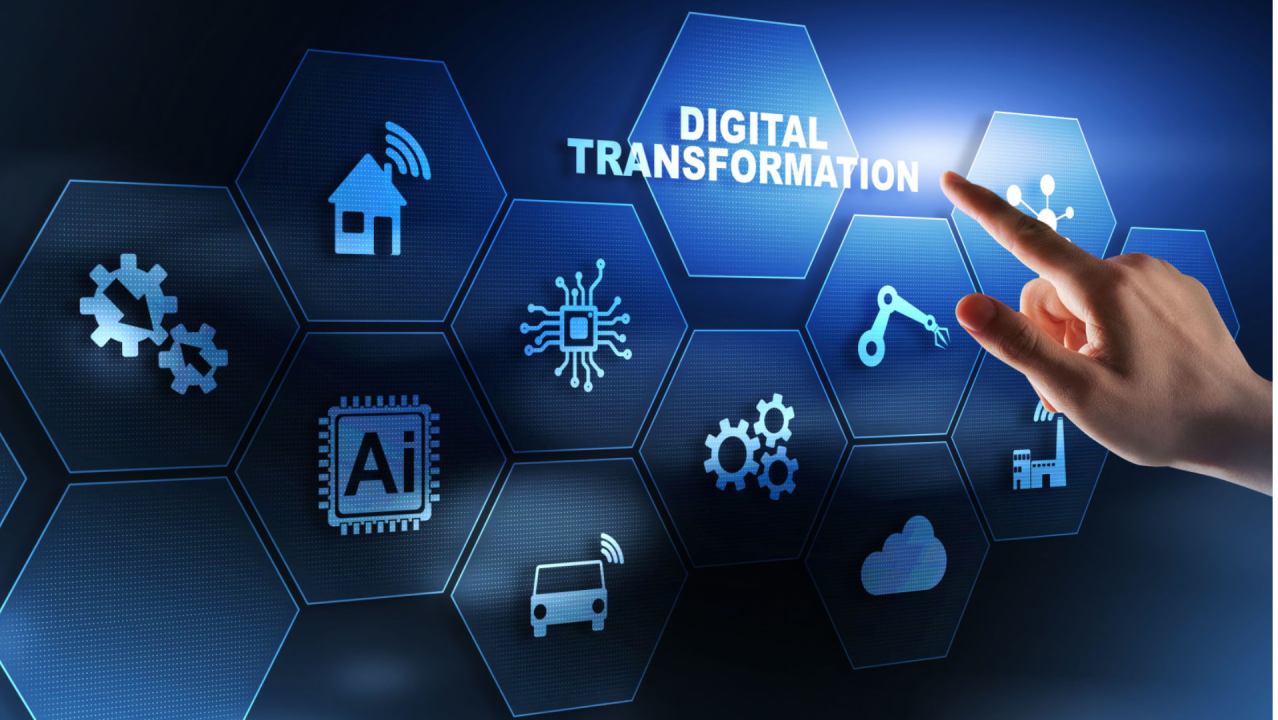Technology is reshaping every aspect of our lives—from how we communicate and work to how we learn and receive healthcare. As innovations continue to drive progress, ethical considerations have taken center stage. Issues like data privacy, algorithmic bias, environmental sustainability, and tech addiction are not just technical challenges; they are moral imperatives that affect society at large. In this article, we explore some of the key ethical challenges in technology today and discuss how businesses, governments, and individuals can work together to build a more responsible digital future.
The Digital Revolution and Ethical Responsibilities
The rapid pace of technological advancement has brought unprecedented opportunities but also raised critical ethical questions. Today, vast amounts of data are generated every second, artificial intelligence (AI) is making decisions in real-time, and our lives are increasingly mediated by digital devices. These innovations have undoubtedly improved efficiency and convenience, but they have also created new vulnerabilities. The question is not whether technology can be harnessed for good, but whether it can be done in a way that is fair, transparent, and sustainable.
1. Data Privacy & Surveillance
In our connected world, data is often described as the new oil—a valuable resource that drives decision-making, personalization, and innovation. However, the collection and use of personal data have sparked intense debates over privacy and surveillance.
Challenges
- Mass Data Collection: Social media platforms, search engines, and mobile apps routinely gather detailed information about our behaviors, preferences, and locations. While this data is used to enhance user experience, it is also exploited for targeted advertising and, in some cases, political manipulation.
- Government Surveillance: Many governments have implemented surveillance programs purportedly designed to enhance security. However, these measures often come at the cost of individual privacy and civil liberties.
- Data Breaches: Cyberattacks and data breaches have exposed sensitive personal information, leaving millions of people vulnerable to identity theft and fraud.
Ethical Solutions
Organizations must adopt transparent data practices. This involves:
- Informed Consent: Ensuring that users understand what data is being collected and how it will be used.
- Data Minimization: Collecting only the data that is necessary for the intended purpose.
- Robust Security Measures: Implementing strong cybersecurity protocols to protect data from breaches.
- Regulatory Compliance: Adhering to regulations such as the General Data Protection Regulation (GDPR) in Europe and the California Consumer Privacy Act (CCPA) in the United States, which are designed to protect personal information.
By embedding these principles into their operations, companies can build trust and protect the rights of individuals in the digital realm.
2. AI Bias & Algorithmic Discrimination
Artificial Intelligence (AI) is revolutionizing industries by automating decision-making processes, from hiring to loan approvals. However, the algorithms that drive these systems are only as unbiased as the data they are trained on—a fact that has significant ethical implications.
Challenges
- Historical Bias: AI systems trained on historical data can inadvertently perpetuate past prejudices. For instance, if a hiring algorithm is trained on data that reflects historical gender or racial imbalances, it may favor one group over another.
- Opaque Decision-Making: Many AI systems operate as “black boxes,” meaning their decision-making processes are not transparent. This lack of transparency can make it difficult to identify and rectify discriminatory practices.
- Systemic Inequality: When biased algorithms are used in critical areas such as criminal justice or credit scoring, they can exacerbate existing inequalities, affecting marginalized communities disproportionately.
Ethical Solutions
To address these issues, tech companies and developers must prioritize:
- Diverse Data Sets: Ensuring that training data reflects a diverse range of experiences and demographics.
- Algorithmic Audits: Regularly testing AI systems for bias and implementing corrective measures when discrepancies are identified.
- Transparency: Making AI processes more transparent so that stakeholders can understand how decisions are made.
- Inclusive Design: Involving a diverse group of stakeholders in the design and development of AI systems to ensure that multiple perspectives are considered.
By taking these steps, we can work towards AI systems that promote fairness and equity, rather than reinforcing existing social biases.
3. The Environmental Impact of Technology
The environmental cost of technological advancement is an issue that often receives less attention than data or AI ethics, yet it is just as critical. The tech industry’s rapid expansion has led to increased energy consumption and significant electronic waste, posing serious challenges to environmental sustainability.
Challenges
- Energy Consumption: Data centers, which power our digital world, require vast amounts of energy. The growing demand for cloud computing and AI processing has significantly increased the carbon footprint of the tech industry.
- E-Waste: The fast-paced cycle of innovation has led to an ever-increasing amount of electronic waste. Smartphones, laptops, and other electronic devices often become obsolete quickly, contributing to a mounting e-waste problem.
- Resource Depletion: The production of electronic devices relies on finite resources such as rare metals. Over-extraction of these materials not only depletes natural resources but also has environmental and social repercussions.
Ethical Solutions
To mitigate these environmental challenges, both companies and consumers can take action:
- Sustainable Practices: Companies should invest in energy-efficient technologies and renewable energy sources for data centers. Innovations like green computing and sustainable manufacturing practices can significantly reduce the environmental impact.
- Recycling and Reuse: Implementing robust recycling programs and designing products with longer lifespans can help reduce e-waste.
- Consumer Awareness: Consumers can play a role by choosing eco-friendly devices and supporting companies that prioritize sustainability.
- Regulatory Measures: Governments can introduce policies that encourage or mandate sustainable practices within the tech industry.
By embracing sustainability, the tech industry can continue to innovate without compromising the health of our planet.
4. Tech Addiction & Mental Health
While technology has undoubtedly improved our lives, it has also contributed to a growing epidemic of tech addiction and related mental health issues. The design of many digital platforms is intended to capture and retain user attention, often at the expense of well-being.
Challenges
- Constant Connectivity: The omnipresence of smartphones and social media can lead to a constant state of connectivity, which can interfere with sleep, reduce face-to-face interactions, and increase stress levels.
- Psychological Impact: Social media platforms, with their endless streams of content, can contribute to anxiety, depression, and feelings of isolation. The pressure to maintain a curated online persona can further exacerbate mental health challenges.
- Behavioral Conditioning: Features like push notifications, infinite scrolling, and autoplay videos are designed to keep users engaged for as long as possible, making it difficult for individuals to disconnect.
Ethical Solutions
Tech companies have a responsibility to design products that prioritize user well-being:
- Humane Design: Implementing features that encourage healthy usage patterns, such as screen time trackers, breaks, and mindful notifications.
- User Control: Allowing users to customize their digital experiences to reduce overwhelming stimuli and promote balanced usage.
- Digital Literacy: Educators and policymakers should promote digital literacy programs that teach individuals, especially young people, about the potential psychological impacts of technology and how to use it responsibly.
- Support Services: Providing access to mental health resources and support can help users manage the pressures of a constantly connected world.
By redesigning digital experiences with a focus on well-being, the tech industry can help mitigate the adverse effects of tech addiction and promote a healthier relationship with technology.
Building a More Ethical Tech Future
As technology continues to evolve, so too must our approach to ethics in tech. It is imperative that we build systems and frameworks that prioritize the well-being of individuals and society as a whole. This requires a collaborative effort from all stakeholders.
- For Tech Companies: There is a need to embed ethical considerations into the core of product development. This means not only complying with existing regulations but also proactively adopting practices that protect user rights and promote sustainability.
- For Governments and Regulators: It is essential to create robust legal frameworks that hold companies accountable for ethical lapses. Policies should be designed to protect privacy, ensure transparency in AI, and promote environmental sustainability.
- For Individuals: Consumers must be informed and engaged. By understanding the ethical implications of technology, individuals can make better choices and advocate for practices that prioritize social good over profit.
Conclusion
Ethics in tech is not a peripheral issue—it is at the heart of how we shape the future of our digital society. The challenges of data privacy, AI bias, environmental sustainability, and tech addiction underscore the complexity of modern technology. However, by taking proactive steps and working collaboratively, we can navigate these challenges responsibly.
A more ethical tech landscape is within reach if we commit to transparency, fairness, and sustainability. By doing so, we can ensure that technological progress enhances human life rather than undermining it, paving the way for a digital future that is both innovative and equitable



